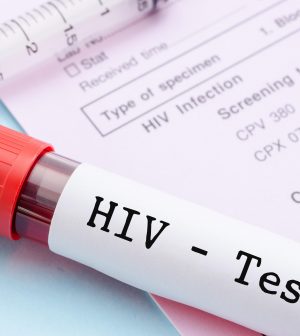- Could Your Grocery Store Meat Be Causing Recurring UTIs?
- Are You Making This Expensive Thermostat Error This Winter?
- Recognizing the Signs of Hypothyroidism
- 10 Strategies to Overcome Insomnia
- Could Artificial Sweeteners Be Aging the Brain Faster?
- Techniques for Soothing Your Nervous System
- Does the Water in Your House Smell Funny? Here’s Why
- Can a Daily Dose of Apple Cider Vinegar Actually Aid Weight Loss?
- 6 Health Beverages That Can Actually Spike Your Blood Sugar
- Treatment Options for Social Anxiety Disorder
Drug-Emitting Vaginal Ring Safely Protects Pregnant Women From HIV

A vaginal ring that emits the antiviral dapivirine has passed safety trials and could shield vulnerable women against HIV infection during pregnancy, a new trial shows.
“We now have data on the ring’s safety during all stages of pregnancy,” said study leader Dr. Felix Mhlanga, a senior lecturer at the University of Zimbabwe Clinical Trials Research Centre.
Based on that data, “we can now say with much greater confidence that the dapivirine ring is safe to use during pregnancy — safe for the mother and safe for her baby,” said Mhlanga in a news release from the Microbicide Trials Network.
While anyone can become infected with HIV, Mhlanga and his team noted that pregnancy more than triples the odds of infection, compared to other time periods.
Especially in countries where HIV is endemic, providing constant protection against HIV during a pregnancy could save the life of both a mother and her child.
The new trial, called DELIVER, wanted to assess the safety of the dapivirine vaginal ring, which has already been approved for use by the World Health Organization and several African countries. The trial was conducted in Malawi, South Africa, Uganda and Zimbabwe.
DELIVER compared the safety of the ring against that of Truvada, a daily combo PrEP pill (emtricitabine and tenofovir) that has long been used to keep HIV infection at bay.
Prior to DELIVER, there was only information on the dapivirine ring’s safety when it was used by women either prior to conception or during the early stages of pregnancy.
That data showed no safety concerns for either the woman or her baby.
In the DELIVER trial, data was gathered from two cohorts of women who used the ring between 12 and 29 weeks of pregnancy, with no safety issues observed.
Data was also collected from a third group of 248 women. A total of 200 used the dapivirine ring from the beginning of the second trimester up to the time of delivery, while the other 48 took daily Truvada.
Yet again, no safety issues were found. Almost all (94%) of pregnancies went to full term, and stillbirths were even less common among ring users compared to women in the local community.
Common complications of pregnancy — gestational diabetes or high blood pressure, including preeclampsia — also occurred at rates that were lower than those seen in the local community.
One worry had been infection — would insertion of the dapivirine ring increase infection risks for women? The study showed no such trend.
The best news of all: “There were no maternal deaths [among ring recipients] and no participants acquired HIV during the study,” according to the news release.
The health of all babies born to trial participants is being tracked for one year; those results aren’t expected till later this year or next.
The findings were presented Tuesday at the Conference on Retroviruses and Opportunistic Infections in Denver. Because these data were presented at a medical meeting, the results should be considered preliminary until published in a peer-reviewed journal.
More information
Find out more about HIV and pregnancy at the March of Dimes.
SOURCE: Microbicide Trials Network, news release, March 5, 2024
Source: HealthDay
Copyright © 2026 HealthDay. All rights reserved.










